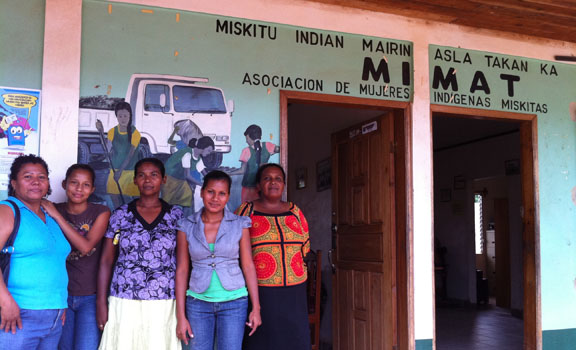When Hurricane Felix struck the Moskitia coast of Central America in 2007, flooding and mudslides devastated the region. More than 160,000 people were affected by that one natural disaster.
Cendela Lopez and her organization, MIMAT—a women’s group in Honduras that works with indigenous Moskita people—traveled to surrounding communities to speak with local women and their families.

Thousands of acres of crops had been destroyed. There was an immediate food shortage and loss of income, but the greatest concerns were long-term. Local women were especially vocal about the vulnerability they felt to future disasters and new weather patterns. They needed to build resilience in the face of their changing climate—a global crisis to which these communities had not contributed.
With a $3,000 grant, MIMAT created three seed banks. Now, these subsistence farmers, and especially the Moskita mothers providing for their families, have access to new seeds if their crops are destroyed by drought, flood, or some other environmental disruption. Crops of beans, rice, yams, and yucca will continue to thrive and support local communities facing climate chaos.
